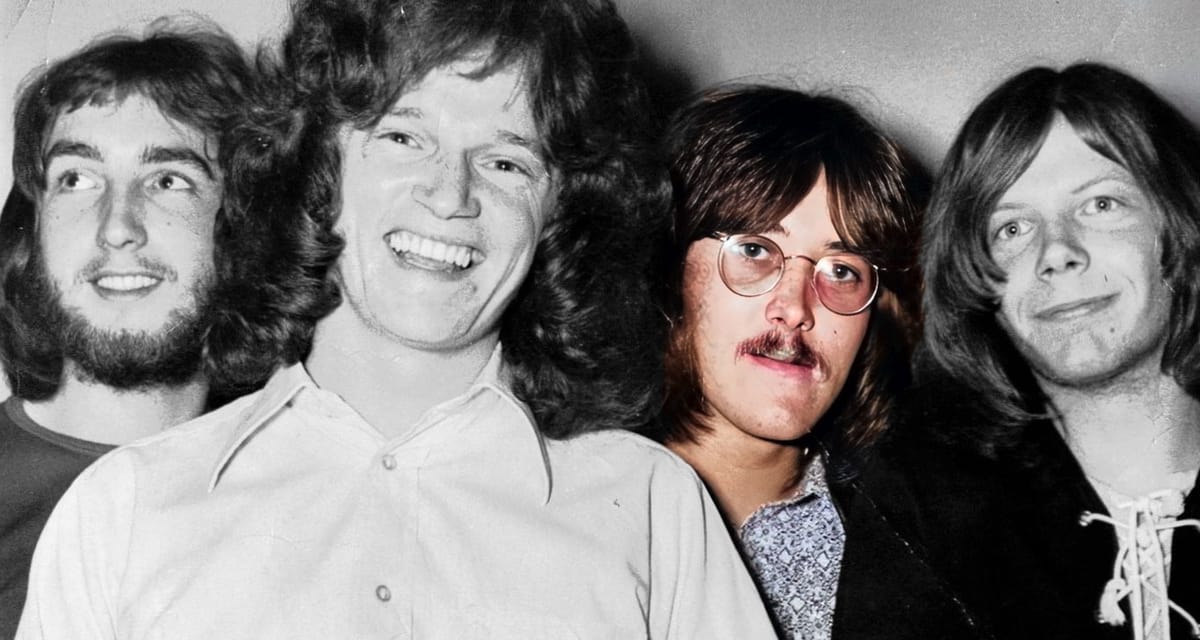Unicorn's Pat Martin Reveals: David Gilmour, Motown Influence, and the Psychedelic '60s

In an era where psychedelia reigned supreme and rock was undergoing a seismic shift, Surrey-based band Unicorn was carving out its own niche. Now, in an exclusive interview with It's Psychedelic Baby Magazine, bassist Pat Martin pulls back the curtain on the band's fascinating journey, from their humble beginnings to working with Pink Floyd's David Gilmour.
From Woking to Wonderland
"Woking wasn't exactly swinging London," Martin quips, reminiscing about his Surrey upbringing. But it was here, amidst the suburban landscape, that the seeds of Unicorn were sown. Martin's early fascination with Motown bass lines would prove pivotal in shaping the band's sound.
"Those Motown records... they were like a masterclass in groove," Martin recalls. "I'd spend hours trying to replicate those lines. It was a far cry from the three-chord beat group stuff we started with."
A Band by Any Other Name
Unicorn's journey wasn't without its identity crises. The band went through several name changes before settling on their mythical moniker. "We were like musical chameleons for a while there," Martin laughs. "But Unicorn stuck. It captured that sense of fantasy we were going for."
The Gilmour Connection
No discussion of Unicorn is complete without mentioning their collaboration with Pink Floyd's David Gilmour. The guitar legend produced three of their albums: 'Blue Pine Trees,' 'Too Many Crooks,' (recently reissued on CD and LP by Think Like A Key Music) and 'One More Tomorrow.'
"Working with David was... surreal," Martin admits. "Here's this guy from one of the biggest bands in the world, and he's in the studio with us, helping shape our sound. It was a masterclass in production."
Copenhagen Nights and Debut Delights
Martin's eyes light up when discussing the band's gig at Copenhagen's Carousel Club. "That was a wild night," he grins. "We were this unknown band from Surrey, playing to a packed house in Denmark. It felt like we'd arrived."
The release of their debut album, 'Uphill All the Way,' produced by Hugh Murphy, marked another milestone. "Hugh really helped us find our feet in the studio," Martin reflects. "That album was aptly named - it was an uphill journey, but so worth it."
The Slow Fade
Despite their early promise and high-profile collaborations, Unicorn's star eventually waned. Martin is philosophical about this: "The music industry is fickle. We had our moment in the sun, and I wouldn't trade those experiences for anything."
As our interview winds down, it's clear that Pat Martin's journey with Unicorn is more than just a footnote in rock history. It's a testament to the creativity, collaboration, and sheer unpredictability of the psychedelic era.
For those looking to dive deeper into the Unicorn saga, the full interview with Pat Martin is available on It's Psychedelic Baby Magazine. It's a trip worth taking for any fan of '60s and '70s rock, offering a unique perspective on a transformative period in music history.
In an age of endless reunions and revivals, Unicorn remains a hidden gem of the psychedelic era. Pat Martin's recollections serve as a vibrant reminder of a time when music knew no boundaries, and even a group of lads from Surrey could find themselves in the studio with a Pink Floyd legend.





